#science books
Explore tagged Tumblr posts
Text

Adhesive color plates for Science Services’ Science Program series booklet Moon. Nelson Doubleday - 1967.
#vintage illustration#vintage books#science books#children’s books#educational books#learning aids#science#vintage children’s books#learning#educational aids#the sciences#the moon#lunar exploration#satellite planet#space#space exploration#astronomy#cosmography
99 notes
·
View notes
Text
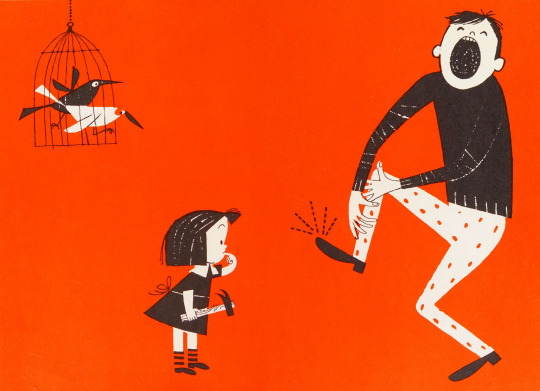
Bernice Myers (1925-2021), ''Sounds All Around'' by Tillie S. Pine & Jospeh Levine, 1958
#Bernice Myers#american artists#science books#children's books#children's illustration#what happens when sounds are made?#this book answers that question
138 notes
·
View notes
Text
The universe is not empty. We are very aware that we are bound to the Earth. The Earth is bound to the Sun and the Sun to the Milky Way galaxy. The Milky Way is bound to the neighboring galaxy Andromeda, both residing in the Virgo supercluster of galaxies. And the Virgo supercluster senses all the other galaxies and all the accumulated energy in our observable universe. So we don’t live in a flat, empty spacetime.
Astronauts also don’t float in empty space. They can see the Earth spin and the Sun roll along. They are falling and weightless, but on a path we’ve been accustomed to calling an orbit, an orbit around the Earth in orbit around the Sun in a glacially long orbit around the galaxy. Their paths aren’t straight. Their paths are curved into a circle around the Earth sewn into the circle around the Sun sewn into the path around the galaxy, because free-fall paths are curved when the sky isn’t empty. Because space is curved by the presence of matter and energy.
Black Hole Survival Guide — Janna Levin
#Black Hole Survical Guide#Janna Levin#book recs#books#book quotes#quotes#science#nonfiction#readblr#bookblr#black holes#science books#astrophysics#spacetime#astronomy quotes#science quotes#popular science#cosmic perspective#reading#currently reading#space books#book recommendations#physics#universe#science lovers#quantum physics#atypicalreads#booklr#orbit
58 notes
·
View notes
Text

#academia aesthetic#chaotic academia#aesthetic#dark academia#aesthetic pictures#light academia#picture#physics#astrophysics#astronomy#quantum physics#books and reading#books#booklr#good books#pretty#poetry#poetic#writers and poets#science#science books#smart#books & libraries#romantic academia#dark acadamia aesthetic#academic research
45 notes
·
View notes
Text


Credit to the original post
25 days of agere moodboard
Day 3: Your Favourite Kid’s Book: I love DK's Eyewitness series since I was actually little. Now I want to own the updated version again.
#age regression#agere moodboard#sfw agere#age regressor#agere#agere blog#sfw age regression#sfw regression#books#encyclopedia#science#science books#middle space#sfw middle space#middle regression#middlespace#2#25ageremoodboards
80 notes
·
View notes
Text
Every Patient Tells a Story review

5/5 stars Recommended if you like: nonfiction, medicine, medical mysteries
I ended up absolutely flying through this book. It was super engaging and I had trouble putting it down between chapters. While some of the information is a little outdated, most of the book focuses on diagnostic techniques and stories of patients whose diagnoses were discovered through various diagnostic means.
One of the reasons I found this book so interesting was because of its focus on diagnostics. Most of the books on medicine I've read focus on a very specific topic--cellular medicine, bacteriophages, Ebola, yellow fever, AIDS, etc.--but this one focuses on a topic that touches everything in medicine. It was really interesting to read about how diagnostic techniques have changed over the years, from the 1800s to early 2000s, and how some techniques have remained the same throughout history.
Sanders also touches on training physicians in the art of diagnostics and how in many ways the field has both improved and weakened. We have so much medical technology today that can tell us more than ever before about what's going on internally, but at the same time, that reliance on technology has resulted in a loss of some of the time-tested aspects of medicine, such as the physical exam. I found Sanders' discussion on the gains and losses of exams to be quite interesting (and am quite relieved that all my doctors still perform physical exams).
One of the highlights of this book are the patient stories Sanders tells throughout the book. Each chapter has at least one patient story, most have two, and they serve to illustrate the concepts she discusses in each chapter. The diagnoses of these patients ranges from something common, like ischemic colitis, to something more unusual, like schistosomiasis, and everything in between. The stories serve to humanize medicine and the patients, but they also humanize the doctors.
This is a pretty quick read and an enjoyable one if you're interested in medicine. I was definitely hooked from one chapter to the next and think I probably could've read the whole thing in a day if I didn't force myself to slow down.
#book#book review#books#book recommendations#bookstagram#booklr#bookblr#bookaholic#bookish#nonfiction#medicine#healthcare#diagnosis#lisa sanders#house md#medical mystery#science books
3 notes
·
View notes
Text
ME AND MY FRIENDS GOT BOOKS SO NOW JUDGE US ON OUR CHOICES ♡♡♡
☆▪︎ME▪︎☆

~ANA~

♤SAM♤

#booklr#bookblr#books#book#science books#social critique#social commentary#mythology and folklore#greek mythology#mythology books#romance#romance books#young adult#icarus#judge me based on#book recommendations
7 notes
·
View notes
Text

#carl sagan#science#book quote#science quotes#science books#book photography#aesthetic#original photographers#photography#photographers on tumblr#book quotes#books#bookish#booklr#bookblr#sabine hossenfelder#calm#bored#photooftheday#my photos
6 notes
·
View notes
Text
Holiday Science Book Recommendations
Looking for science books for the holidays for yourself or others? Here are some that I’ve loved that I don’t see often recommended

Basic Optics and Optical Instruments By Naval Education and Training Program Development Center
Might not look like much but this is perhaps the single best book I’ve ever read about optics. If you have even a passing interest in lasers, rainbows, lens, telescopes (or submarine maintenance) I’d highly recommend giving this book a read. It definitely the best written book I’ve encountered for the topic, significantly better than most textbooks on the topics
A lot of books written by and for the navy are some of the most comprehensive and well-written books on a given topic
Get a copy

The Cartoon Guide to Physics by Larry Gonick and Art Huffman
A book for all ages, I read this book when I was in elementary school and again recently and it remains as charming and informative as ever. Great for children or just anyone more inclined to learn visually


Get a copy

A Man on the Moon by Andrew Chaikin
America has landed on the moon not once, but many times with multiple Apollo Missions. Ever wonder what the astronauts were doing up there?
Get a copy
Have a lovely holiday season! ❄️ ⛄️
#book recommendations#optics#optics physics#holiday book recommendations#science history#science books#happy holidays#cartoon#cartoon guide#cartoon guide to physics#physics 1#physics 2#apollo 11#astronaut#nasa
3 notes
·
View notes
Text
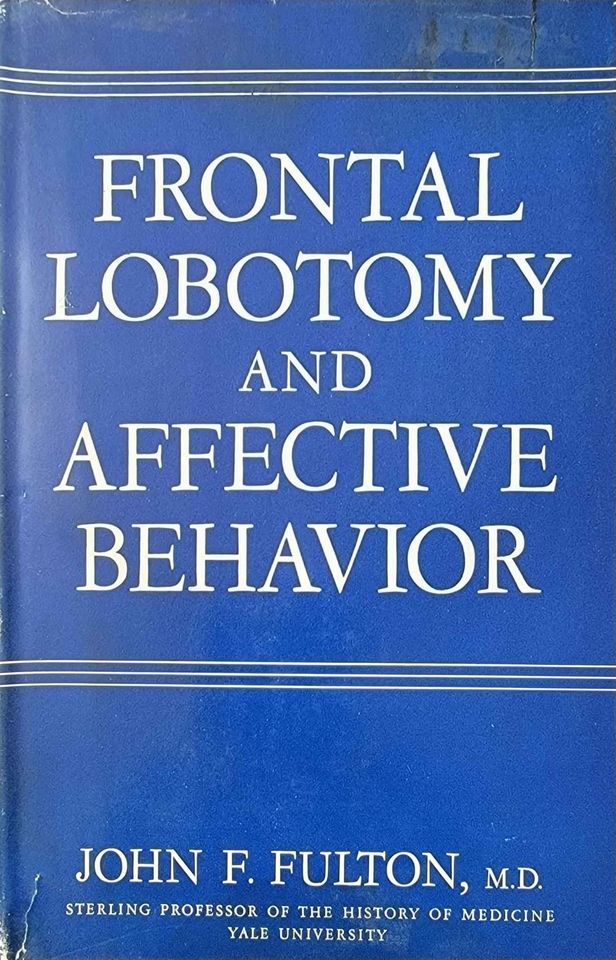
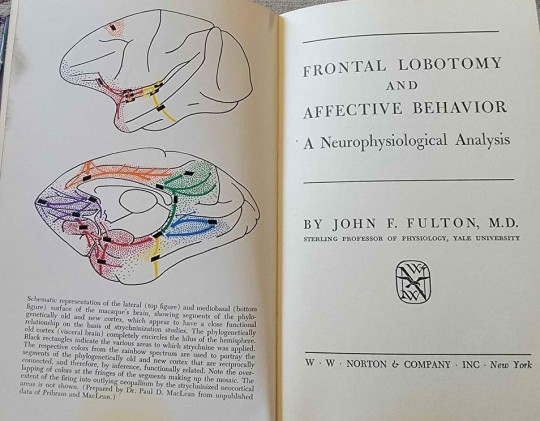
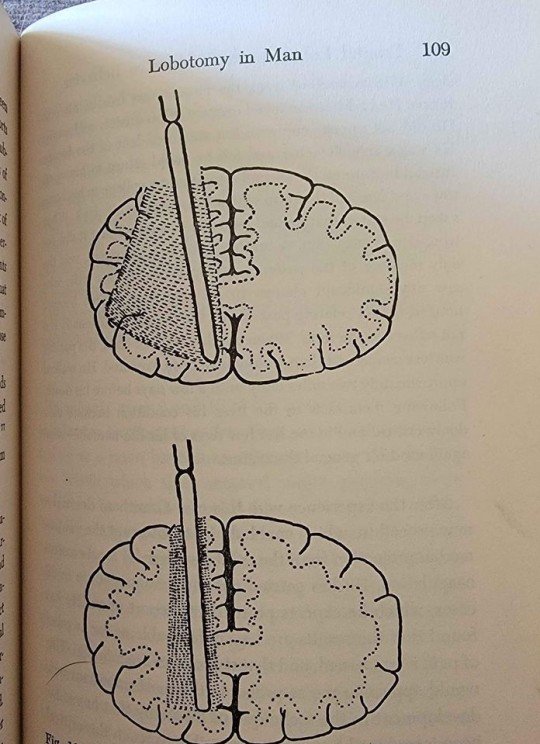
32 notes
·
View notes
Text

Title page of The Golden Picture Book of Nature Walks. Golden Press - 1961.
#vintage illustration#book illustration#books#vintage books#children’s books#vintage children’s books#the 60s#the 1960s#educational books#teen books#science books#nature books#science#natural science
31 notes
·
View notes
Text
REVIEW: Your Inner Fish: a Journey Into the 3.5 Billion-Year History of the Human Body by Neil Shubin

SUMMARY (Provided by Goodreads)
Why do we look the way we do? What does the human hand have in common with the wing of a fly? Are breasts, sweat glands, and scales connected in some way? To better understand the inner workings of our bodies and to trace the origins of many of today's most common diseases, we have to turn to unexpected sources: worms, flies, and even fish.
Neil Shubin, a leading paleontologist and professor of anatomy who discovered Tiktaalik-the "missing link" that made headlines around the world in April 2006-tells the story of evolution by tracing the organs of the human body back millions of years, long before the first creatures walked the earth. By examining fossils and DNA, Shubin shows us that our hands actually resemble fish fins, our head is organized like that of a long-extinct jawless fish, and major parts of our genome look and function like those of worms and bacteria.
Shubin makes us see ourselves and our world in a completely new light. Your Inner Fish is science writing at its finest-enlightening, accessible, and told with irresistible enthusiasm.
MY REVIEW: 4/5 Stars
Your Inner Fish by Neil Shubin was an amazing chronicle about how bodies have evolved over time and how we can trace the human body plan back to that of fish. This book was utterly fascinating, and I loved how Shubin talked about his experiences as a paleontologist. I also thought it was so cool how the human predisposition for hernias as well as getting hiccups comes from our fish and amphibian ancestors.
The one thing I didn't like about this book was the outdated use of the word "primitive" when referring to animals in contrast to humans. While this book was published over ten years ago, more recent books about biology, anthropology, and nature make the point that all animals have been evolving just as long as humans and are built to fit well into their respective habitats. Everything alive today is no more or less "primitive" than everything else currently alive. I think that this book is very informative and very important for people wanting to understand evolution, however I do think it is important to keep my previous comment in mind, along with the fact that the use of the word "primitive" in reference to animals (and other humans) has lead to grave misunderstandings. Calling other creatures "primitive" allows people to justify hunting creatures to extinction and the destruction of whole ecosystems in exchange for human benefit. If you've read other biology books, his use of "primitive" can be easily dismissed (as it was for me) but I just think it could be misleading if you don't know much about the subject.
#your inner fish#neil shubin#book review#books#non fiction#science books#science#biology#anthropology#evolution#nature#history#natural history#paleontology#4 star books
5 notes
·
View notes
Text
When we contemplate the shadow of our local supermassive black hole, we are contemplating our future. That is where our data, our scraps of quantum information, may end up. Look in the direction of Sagittarius as we imperceptibly fall toward our galactic center. Given a near eternity, all of us who have ever lived here on Earth or ever will live, vaporized by our dying Sun into our fundamental elements, will fall into a supermassive black hole at the center of our merged galaxies, as will every other star system, scrap of galactic debris, the entire halo of dark matter. Everything will wash down the central vortex, flashing spectacularly bright, the last desperate blasts of concentrated light in the cosmos, until all vanishes in a darkening silent storm in spacetime.
One day, although it’s quaint to think of that moment in the epic future in terms of days, when the universe is nearing the end of its metabolic life, the cosmos may be empty except for black holes, and those black holes will evaporate, likely surrendering the information hoarded, the current controversy resolvable if only there were somebody left to play witness. Our quantum bits possibly will reside simultaneously inside the black hole and outside the black hole. Linked by wormholes, we will be our own clones in two places at once. When all of our information is finally released from the fading event horizon, it will be miserably disordered. Illegible.
Ultimately, there only ever was information. This story of our beginning, our evolution, our ambitions to know, our presence here, will be strewn in an unreadable form no longer registering time, our history effectively erased.
In the end, there is no surviving black holes.
— Black Hole Survival Guide, Janna Levin
#Black Hole Survical Guide#Janna Levin#book recs#books#book quotes#quotes#science#nonfiction#readblr#bookblr#black holes#science books#astrophysics#spacetime#astronomy quotes#science quotes#popular science#cosmic perspective#reading#currently reading#space books#book recommendations#physics#universe#science lovers#quantum physics#atypicalreads#sag a#sagittarius A#supermassive black hole
31 notes
·
View notes
Text
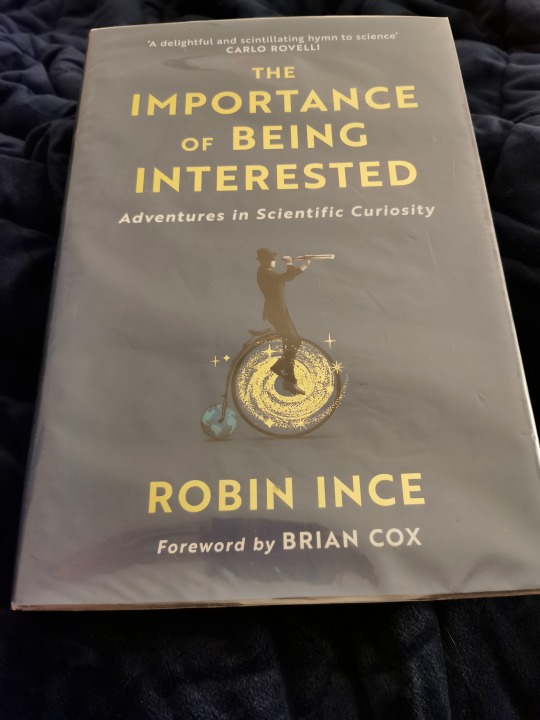
borrowed this from the library yesterday, there's still a couple of things before it on my to be read but I'm looking forward to it. I'm hoping it might be similar to my favourite science book Rutherford and Fry's guide to absolutely everything (which I still need to make a post about)
#science#science books#The importance of being interested#Use your local library#public libraries#local library
12 notes
·
View notes
Text

"And the Band Played On: Politics, People, and the AIDS Epidemic" by Randy Shilts
Thank you @dr.bookmom for the intense, enlightening read ❤️
#Trust the science#The government is here to help#aids epidemic#aids crisis#The band played on#Randy Shilts#Nonfiction books#history books#science books#LGBT#lgbt history#lgbt books
4 notes
·
View notes